This article is authorized for reprint by AI New Media Quantum (Public Account ID: QbitAI). For reprinting, please contact the source.
People have long suffered from mosquitoes.
Especially on summer nights, the buzzing sound near your ear can lead to “battles” lasting hundreds of rounds.
To address this, a foreign PhD has DIYed a high-end method for killing mosquitoes:
Computer Vision accurately locates and laser instantly kills.
And it’s made with a Raspberry Pi.
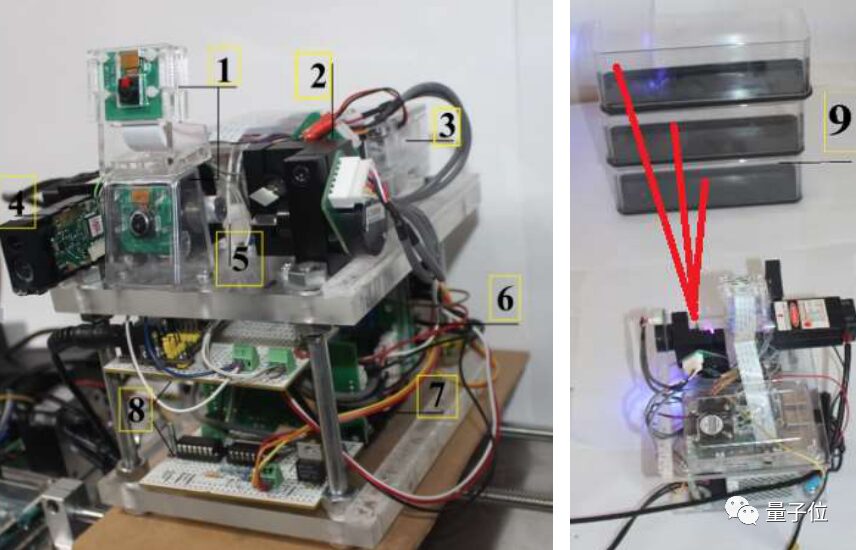
Raspberry Pi Laser Gun for Mosquito Killing
This high-end mosquito killing method requires what equipment?
Mainly includes four major components:
-
More than 200 pieces of Raspberry Pi 3 Model B+: It uses a 1.4GHz quad-core processor, specifically the Broadcom BCM2837B0 model.
-
Raspberry Pi Camera: The specific model is Sony IMX219, with a resolution of 8 million pixels.
-
Ammeter (Galvanometer): About 20 kPPS.
-
Laser: Power is around 1W, wavelength is 450nm.
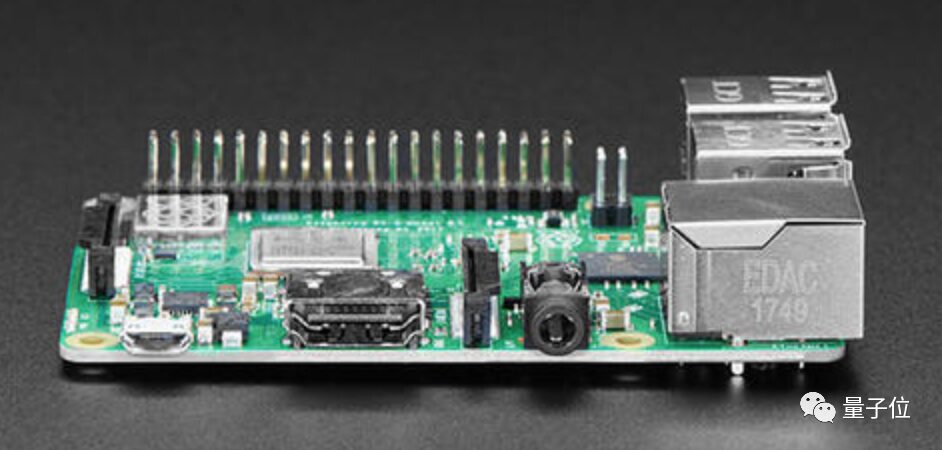
The size of a mosquito ranges from 1mm to 5mm, which is the main standard for detecting and locating mosquitoes.
Previous methods using ultrasound and other forms have certain limitations, such as being unable to handle multiple mosquitoes.
Therefore, in this study, the method used for the task of locating mosquitoes is computer vision technology.
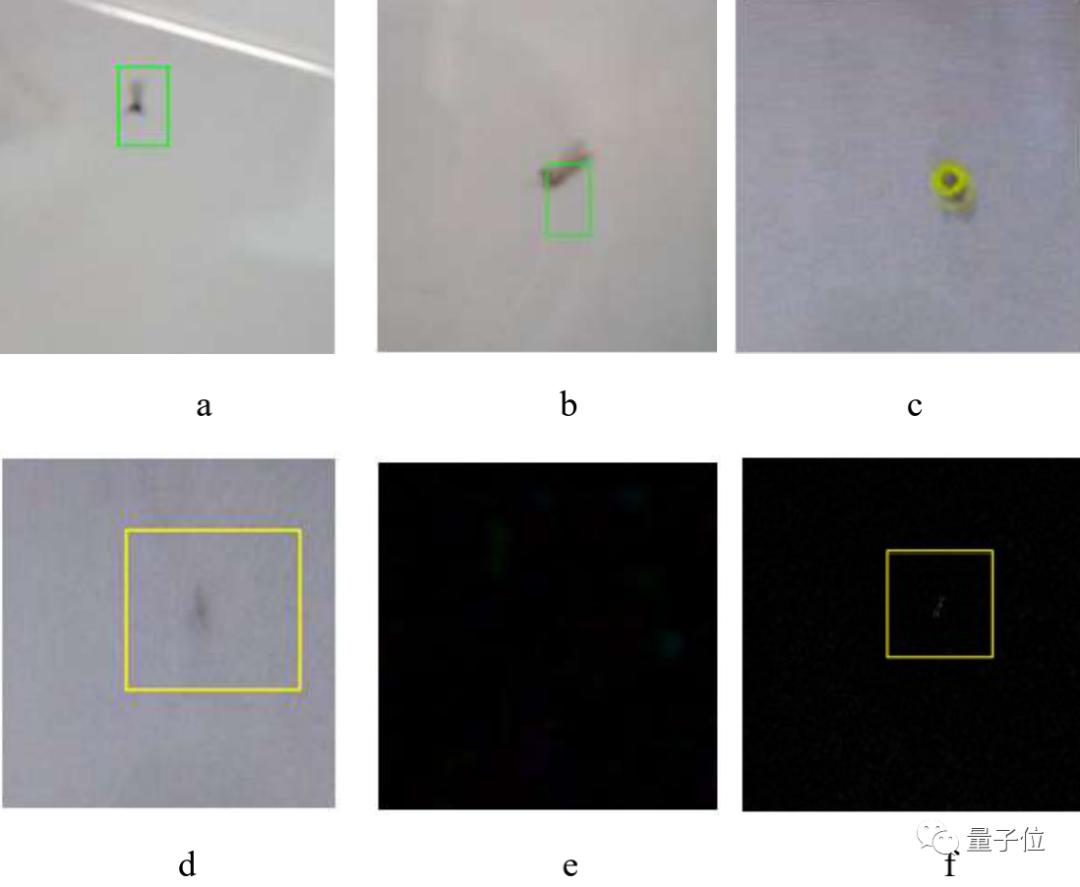
Then, the heat of the laser is used to eliminate it in one go.
Although the research did not provide specific operational examples, as early as 2010, National Geographic magazine in the USA released a similar working principle video:
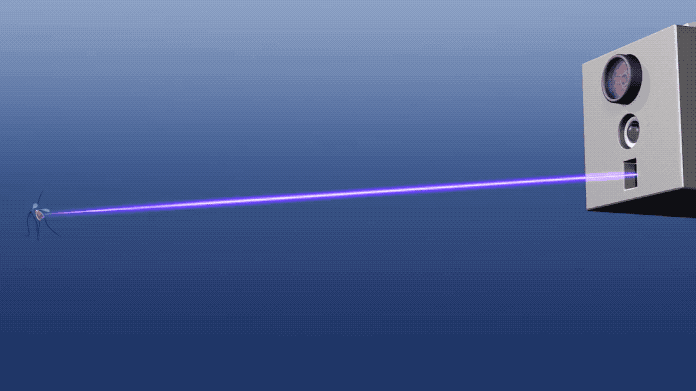
The slow-motion footage looks like this:
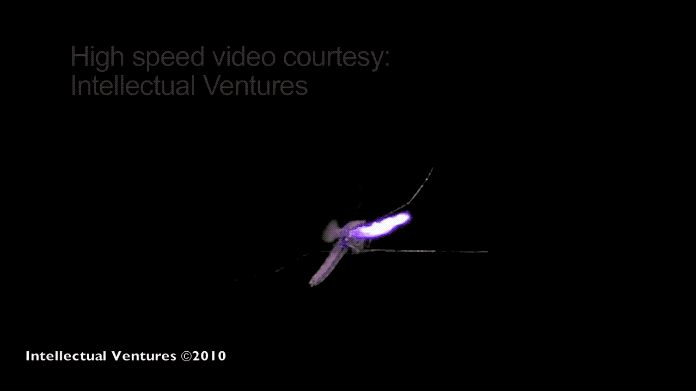
Steps for AI to Kill Mosquitoes
Specifically, the process of AI exterminating mosquitoes is shown in the diagram below:
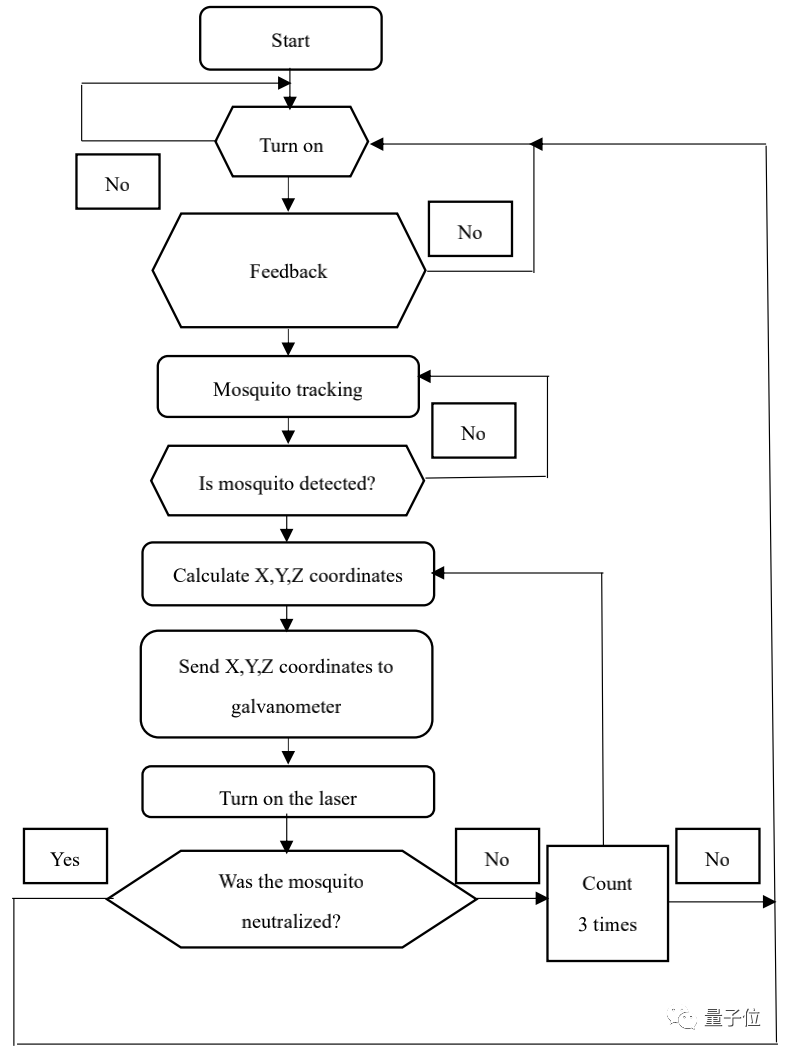
First, use the target tracking function in OpenCV (the study used TrackerCSRT) to locate the mosquito.
Then calculate the x, y, z coordinates of the mosquito’s position and send the coordinate information to the ammeter.
Finally, after completing the above work, the laser is activated and fired.
After the laser is fired, there will also be a confirmation process to check if the target has been exterminated.
If the mosquito has been eliminated, it returns to the initial step of the process to look for the next target; otherwise, it recalculates the mosquito’s coordinates for the next shot.
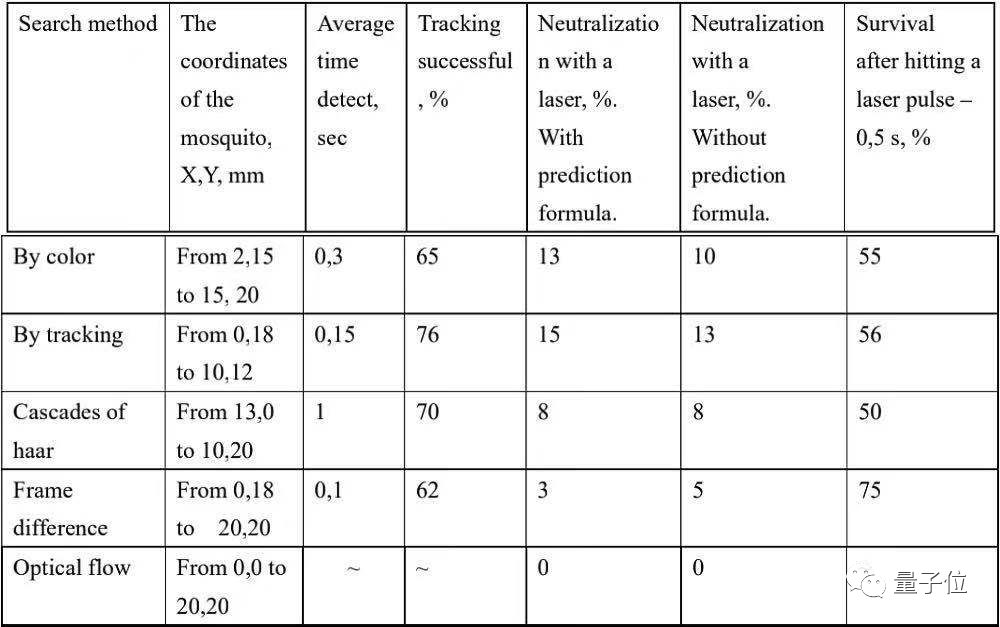
Of course, in addition to using target tracking, researchers also compared it with other positioning methods.
After comparison, it was found that the success rate of the target tracking method is relatively high, but only 76%.
The researchers believe that this study at least proves that “AI + laser mosquito killing” is feasible, but further in-depth research on the success rate is needed.
Additionally, the researchers proposed the idea of mounting it on a drone to work in the fields in the future.
Netizens: Will It Harm Humans?
Although this “high-end mosquito killing” method built with Raspberry Pi is refreshing, it has also sparked heated discussions among netizens.
Some feel that this method is unsafe, mainly arguing that a 1W laser can damage human eyesight, especially in the case of being mounted on a drone:
A drone equipped with a laser sounds worse than mosquitoes.

However, some netizens seem to be quite “obsessed” with such a product, exclaiming:
When can I buy it?
So, would you accept this method of killing mosquitoes? Feel free to comment and discuss!
References:
[1] https://www.preprints.org/manuscript/202101.0412/v1[2] https://news.ycombinator.com/item?id=26376376[3] https://www.youtube.com/watch?v=BKm8FolQ7jw
